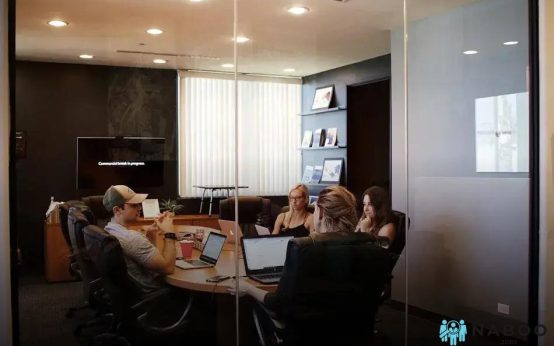Considering taking a break from your career? It’s a big decision, but one that can offer invaluable personal and professional growth. In this guide, discover effective strategies on how to prepare for a career break, from financial planning to clear communication with your employer. This journey requires careful thought and preparation to ensure a smooth transition both into and out of your time away from work. Let’s explore how you can successfully navigate this life-changing decision.
Understanding the Benefits of a Career Break
Stepping away from your career can initially seem daunting, but a career break offers numerous advantages that can be significant for personal and professional growth. During this time, individuals often discover new interests, skills, and perspectives that may not have been explored otherwise. A well-planned career break can be a period of meaningful development, allowing professionals to assess their life and career trajectories. This reassessment can lead to improved job satisfaction once you return to the workforce. Breaks also provide an opportunity to invest time in education, whether pursuing formal courses, workshops, or self-directed learning. Such experiences can significantly enhance your professional competence and confidence.
Moreover, career breaks enable individuals to travel, volunteer, or spend more time with family, which can lead to improved mental well-being. Taking a break may give you the rest and rejuvenation needed to avoid burnout, thus promoting long-term career health. Ultimately, a career break is a chance to broaden horizons, redefine priorities, and return to work with renewed motivation and clarity.
Financial Planning for Your Career Break
Taking a career break requires careful financial planning to ensure a smooth experience without unnecessary stress. Begin by evaluating your current financial situation, including savings, expenses, and any ongoing financial commitments. Create a realistic budget that outlines expected income, savings, and expenditures during your break. Consider potential sources of income, such as part-time work, freelancing, or passive income streams.
It’s crucial to establish an emergency fund before your break, covering at least 3-6 months of living expenses to handle unexpected costs. Cut down on unnecessary expenses by prioritizing spending and seeking cost-effective alternatives. Review subscription services, dining habits, and entertainment choices to identify areas for reduction.
Investing in short-term financial instruments that provide liquidity can offer peace of mind. Meanwhile, explore health insurance options to maintain coverage during your break, ensuring you’re not caught unprotected in case of medical emergencies.
Plan for long-term financial goals, like retirement savings, so you don’t fall behind when taking time off. Adjust contributions to retirement accounts accordingly and be aware of any penalties or fees for early withdrawal if needed.
Consult a financial advisor if necessary, to tailor a strategy that aligns with your specific situation and goals. With the right financial groundwork, your career break can be a rewarding and stress-free experience, paving the way for personal and professional growth.
Setting Goals and Expectations
Before embarking on a career break, it’s crucial to define clear and achievable goals. Are you planning to travel, volunteer, or perhaps learn a new skill during this period? By identifying your objectives, you can create a roadmap that guides your activities and ensures you make the most of your break.
Expectation setting is also key. Consider how this time off might impact your career trajectory and how you plan to manage potential challenges. Communicating your plans with family, mentors, and professional contacts can provide valuable feedback and support.
Your goals should be specific, measurable, and flexible enough to allow for unforeseen opportunities or obstacles. Whether you’re aiming to achieve personal growth or simply recharge, keeping your aspirations in focus will help maintain motivation and purpose throughout your time away from work.
Lastly, regular check-ins with yourself can ensure alignment with your initial goals. Adjusting expectations as needed will help you stay on track and return to the workforce with renewed energy and clarity about your future career path.
Communicating with Your Employer
Open and honest communication with your employer is crucial when planning a career break. Begin by assessing your work performance and contributions to build a strong case. Prepare documentation that highlights your achievements and skills.
Schedule a private meeting with your supervisor to discuss your intention for a career break. Focus on the benefits of the break, such as personal development or gaining new perspectives that can enhance your future work.
Be clear about the duration of your career break and suggest possible solutions, like redistributing tasks or hiring temporary help. You might also propose a plan for a smooth transition, ensuring your responsibilities are managed during your absence.
It’s essential to discuss how you’ll maintain communication during the break. This might include periodic updates or a scheduled check-in to keep both parties informed. Be open to feedback from your employer and address any concerns they may have.
Consider negotiating aspects like a possible return position or re-entry strategies. Clarify your return process, ensuring a smooth integration back into the team when you decide to resume your position.
Reintegrating into the Workforce Post-Break
After taking a career break, reentering the workforce can be challenging, but with the right strategies, it’s entirely manageable. Firstly, update your resume by including any skills or experiences gained during your break. Emphasize transferable skills that are relevant to your desired position. Additionally, consider taking online courses or workshops to sharpen your skills and demonstrate continuous learning.
Next, tap into your professional network. Reach out to former colleagues and connections to let them know you’re back on the job market. Networking events or professional groups can also provide valuable opportunities. Don’t hesitate to express your readiness for new challenges.
The modern job market values digital presence, so ensure your LinkedIn profile is current and reflects your recent developments. Write a compelling summary that explains what you learned during your break and how it benefits potential employers. Moreover, consider creating a portfolio or personal website to showcase any freelance or volunteer work you’ve been involved in during your downtime.
Consider Flexible Options
Part-time positions, freelancing, or temporary work can serve as a stepping stone to full-time employment. These options provide a smoother transition and allow you to acclimate to the workplace environment gradually.
Lastly, during interviews, address your career break confidently. Highlight the positives, such as personal growth or new skills acquired. Assure potential employers of your commitment and enthusiasm to rejoin the workforce.




